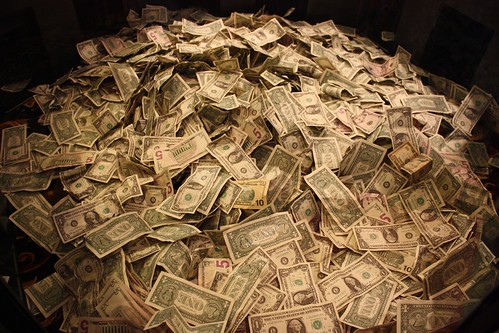Tuesday, September 14, 2010
Writing Proposals For Government Grants: How To Avoid Scams

When many of us hear the phrase “government grants,” free money often pops into mind. Yes, there are legitimate government grants that do translate into money, but there is a lot of misinformation circulating. In rare cases, individuals do qualify for government grants, but they are typically awarded to non-profit organizations, state and local governments, Native Americans, small business owners, and colleges. If you are an individual looking for free grant money, your chances are small, but that doesn’t mean you can’t look. When looking, save your money and avoid common grant scams.
For you to save your money and avoid government grant scams, you must first know what they are. Unfortunately, these scams come in a number of different formats. Luckily, most are easy to spot. What do you need to be on the lookout for?
Someone who emails you. A friend or another non-profit organization who stumbled across a grant you may qualify for will just pass on the information. They are doing this out of the kindness of their heart. What you need to watch for are strangers who email you unexpectedly. These individuals will obtain some of your personal information, like your name, address, and email address online. It sounds legitimate because they know a little bit about you. They claim they were reviewing their records and noticed you qualified for a government grant. For a small processing fee, they will help you submit your application and even write a grant proposal for you.
Some who calls you. As with the above mentioned email scam, be on the lookout for people who call you out of nowhere. They often disguise themselves as a professional individual or a member of a company. They will also claim their records indicated you qualified for a government grant. Once again, they will offer to help you apply for the grant, but for a processing fee.
Unfortunately, people fall victim to these two scams. It is because the frauds usually toss around phrases like “free money.” As previously stated, there really are legitimate grants offered by the federal government. Where the scam comes in is when you give your checking account information. Most scammers tell you that you are qualified to receive this free money but give you no information until giving bank account numbers. Do not do it! Government grants do not come to you; you must find them yourself. Once the scammer has your checking account information, they can withdrawal their “processing fee,” but also wipe your account clean.
There are professionals who will help you find government grants, complete the application, as well as write you a grant proposal. These individuals are grant writers. However, they will not approach you. Grant writers are often professionals who work on a freelance basis. They will help get the process started, but only if you contact them first.
Although not necessarily classified as a scam, more of a waste of money, be on the lookout for paid products. Some membership websites online want you to pay to gain access to their government grants database. There are infomercial products claiming you can get free money from the government. Remember, this can happen, but it is rare for personal individuals. It will not hurt to look, but do not pay for this information. Instead, visit Grants.gov or speak to government officials. These approaches are free.
PPPPP
Word Count 562
Subscribe to:
Post Comments (Atom)

0 comments:
Post a Comment